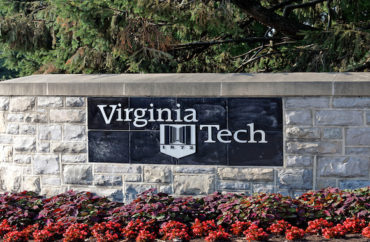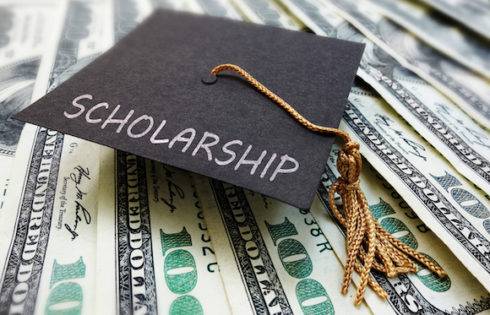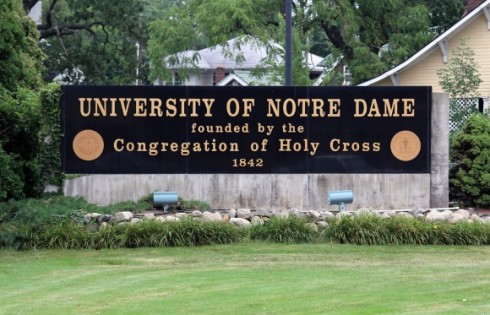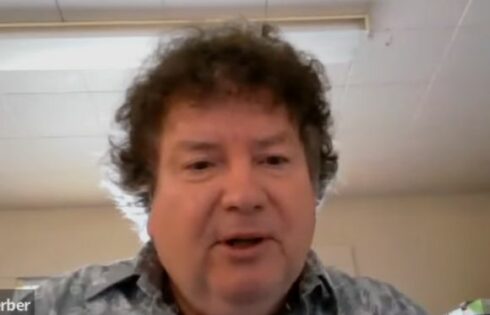
A case winding its way through the court system appears to have gained strong support from at least one judge on a three-judge panel.
When the Fourth Circuit Court of Appeals in Richmond, Virginia, heard oral arguments Oct. 25 in a case challenging Virginia Tech’s speech policies, Reagan-appointed U.S. Circuit Judge J. Harvie Wilkinson III heavily criticized the university’s procedures and found the complaint raised several “First Amendment red flags,” Courthouse News Service reported.
The judge also reportedly questioned how the policies could not have a chilling effect when students can be reported for what they say.
“You got a university that’s supposed to be free for dialogue, but you have to channel it through an approval process,” Wilkinson stated.
But the two Democrat-appointed judges on the panel, Albert Diaz and Diana Gribbon Motz, seemed to side more closely with the university and argued policies requiring students to ask permission for logistical reasons seem sound, Courthouse News Service reported.
In April 2021, Speech First, a nonprofit committed to safeguarding freedom of speech on college campuses, filed the lawsuit against Virginia Tech, arguing that two of its campus policies infringe on students’ ability to speak freely about controversial issues.
The first concern lies within the university’s “anti-discriminatory harassment policy,” which restricts “inappropriate conduct” based on various factors including age, gender and race, and prohibits actions that could “create a hostile environment.”
Speech First attorney James Hasson argued “the policy creates self-censorship due to enforcement” during oral arguments, Courthouse News Service reported.
The second issue in contention concerns Virginia Tech’s Policy 5215, which requires students to obtain permission for any “informational activities,” such as the circulation of a petition or the distribution of pamphlets.
Judge Wilkinson questioned whether the authors of the Constitution would want Americans to have to ask for approval to exercise their right to free speech, Courthouse News reported.
However, William Hurd, the attorney representing Virginia Tech, and the university’s president, Timothy Sands, argued that since there is no campus rule that prohibits free speech, the university does not enforce censorship against students, the news service reported.
In Speech First’s brief to the court, the group provided thorough narratives from two Virginia Tech students who claim the school’s policies infringe their free speech rights. One student felt the national Black Lives Matter movement was harmful for the country, and the other believed a wall must be built on the U.S.-Mexico border to protect against illegal immigrants.
“Students A and C want to ‘engage in open and robust intellectual debate’ with their fellow students and ‘speak passionately and repeatedly’ about their views in class, online, and in the broader community,” the brief states. “But Students A and C fear that students, faculty members, or others will report them to university officials for committing a bias incident.”
Virginia Tech has also filed a motion to dismiss the case for lack of standing on the basis that one of the students had already graduated and the other would be graduating in December, likely before the appeals court’s ruling is issued, Courthouse News reported.
Speech First President Cherise Trump told The College Fix via email that the organization’s mission is to “stand with students in defending their Constitutional rights, and we look forward to hearing the court’s decision on this important Virginia Tech case.”
“Like every case we’ve filed, our hope is that colleges will end their assault on students’ free speech because, with open dialogue and an exchange of diverse opinions, strong leaders are forged,” she said.
Mark Owczarski, assistant vice president of university relations at Virginia Tech, declined to comment to The College Fix on the pending litigation.
MORE: Federal free speech lawsuit against Virginia Tech continues
IMAGE: Katherine Welles / Shutterstock
Like The College Fix on Facebook / Follow us on Twitter






Please join the conversation about our stories on Facebook, Twitter, Instagram, Reddit, MeWe, Rumble, Gab, Minds and Gettr.